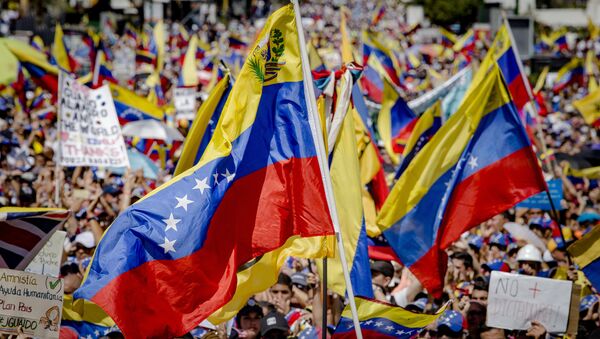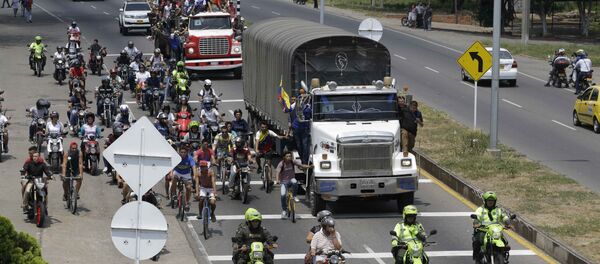Caracas has declared German Ambassador to Venezuela Daniel Kriener persona non grata due to his repeated attempts to interfere in the country's internal affairs, Venezuelan Foreign Minister Jorge Arreaza has announced.
Arreaza made the announcement on his Twitter account on Wednesday morning, accompanying the post with a copy of the letter explaining the decision.
El Gobierno de la República Bolivariana de Venezuela hace del conocimiento público la decisión de declarar persona non grata al Embajador de la República Federal de Alemania, Daniel Kriener, ante sus recurrentes actos de injerencia en los asuntos internos del país. Comunicado: pic.twitter.com/qqo6FyKiM0
— Jorge Arreaza M (@jaarreaza) 6 марта 2019 г.
"The Bolivarian Republic of Venezuela will make public the decision to declare Daniel Martin Kriener, Ambassador of the Federal Republic of Germany, persona non grata because of his periodic interference in the country's internal affairs, which is a clear violation of the norms of diplomatic relations," the statement accompanying the tweet said.
"Venezuela is free and independent, so the actions of diplomatic representatives which support intervention in matters of exclusive competence of the people and the authorities of the Venezuelan state, are not and will not be accepted. Consequently, Mr. Kriener is given a period of 48 hours to leave Venezuela," it added.
The German foreign ministry confirmed Wednesday that its ambassador had been expelled, with a spokesperson saying Berlin was consulting with allies in formulating a response.
Later in the day, German Foreign Minister Heiko Maas slammed Caracas' decision while confirming that the envoy would be recalled for consultations.
"This is an incomprehensible decision, which escalates the situation instead of easing tensions," Maas said, adding that "European support for Juan Guaido is unwavering."
Earlier, Germany condemned Venezuelan authorities' decision to block US humanitarian aid from entering Venezuela from Colombia and Brazil. In recent weeks, Caracas has repeatedly voiced fears that such 'aid' could be used as a Trojan horse with which the opposition could carry out a coup d'etat against the government.
In late January, Juan Guaido, leader of the semi-defunct National Assembly, proclaimed himself interim president shortly after Maduro's inauguration for a second term in office following elections in May 2018. The US, Canada, and several of Washington's regional allies immediately recognised Guaido as Venezuela's leader. Germany and several other European powers gave Caracas an eight-day deadline to hold snap elections, after which they too joined the US in recognising Guaido.
Russia, China, Mexico, Turkey, Iran, Syria and over a dozen other countries have voiced their support for Venezuela's government, or have urged outside powers not to intervene in the Latin American country's internal affairs.



